Becoming a Leeds graduate

Top tips from Leeds graduates
Now that you've graduated you may be making plans for life after Leeds, or perhaps you're still not sure what you want to do next. Whatever stage you're at, who better to offer guidance than those who have walked this path before you.
We asked the classes of 2020 and 2021 to share their top three tips of what they wish they'd known when they graduated from Leeds.
Whether it's advice on deciding where to live, on finding a career path, or on deciding whether to continue in academia, read their top tips.
Top tips for the Class of 2022

Marios Kolovos (MSc Consumer Analytics and Marketing Strategy 2020)

1. Never underestimate your capabilities.
2. Keep on trying to get a career that will satisfy you, don't just choose a job for the sake of having a job.
3. Don't forget to have fun. There is more to life than job hunting/working.
Mateusz Deszcz (Economics and Finance 2021)
There is an insane pressure for students to secure top graduate schemes but obviously not everyone will get lucky (spots are limited after all). At the point when your peers start working in these graduate positions you might feel an urge to get any job and start gaining experience, so as not to stay behind. My tip is don’t rush. Really only apply for the positions you’re interested in. Consider alternatives that will stretch you too - start-ups, entrepreneurship, and part-time work. You’ll thank yourself later. Most importantly grow every day, but don’t rush.
Fangfang Nie (TESOL 2021)
"Try to meet some great people in your field of work"

1. I think it is important to take your interest into deep consideration while we are looking for a future job. A true love for our job will help to overcome a lot of difficulties and depression during some hard times in work and provide us with full passion continually.
2. If possible, try to live near where you work. It will save you plenty of time and energy from travelling.
3. Try to meet some great people in your field of work. They may be our good teachers and friends and offer us valuable guidance and suggestions.
Pelumi Agbedejobi (Aeronautical and Aerospace Engineering 2021)
1. What you study doesn’t define you or your future.
2. University isn’t necessarily preparation for life.
3. Plan ahead, and have an idea what you want to do afterwards.
Maria Vasileiadi (LLB law 2021)

Do not undertake a master’s degree if you’re not sure what you want to specialise in. A master’s degree is a lot of commitment, time and effort. If you’re not enjoying it, it will really make your life difficult. Make sure you know exactly what you want to specialize in.
Faye Foers (Ultrasound Intervention 2021)
1. Be prepared
2. Have a goal or focus for once you leave
3. Think about further education
Jefferson Jaikissoon (MSc Climate Change and Environmental Policy 2020)
"It helps to know that others have faced and triumphed what you are currently dealing with"

1. Speak to past students, mentors, and lecturers about your plans. Their inputs can help to give you a bit of direction if you are still unclear about your future career. It helps to know that others have faced and triumphed what you are currently dealing with, so take a load off, it's been done before. You'll also find that these people could tell you about opportunities that might pique your interest. You never know, so strike up a conversation, be open and receptive.
2. Social media is a useful resource if wielded properly. I was dismayed by the numerous opportunities for Internships, PhD programmes, jobs and networking projects I let pass me by because that was not my focus nor expectation of social media. The lesson here is that a tremendous amount of information gets circulated on various platforms, so don't miss out on that dream job or chance to pursue higher studies, tailor your feed and what you consume virtually, follow reputable channels and stay alert for updates, you may find your calling an Instagram post away.
3. Don't worry and beat yourself up with self-doubt and those 'what-ifs'. I found myself to be extremely reflective after completing my studies and some amount of regret did accompany my thoughts. It was upon me to recall why I pursued my chosen field of study and remind myself of my passion and drive. I did so by reconnecting with family and friends, animals and the serene outdoors. I found that overtime, those regrets all but dissipated and my outlook was upbeat and optimistic. I learned to accept the things I can't change and change what I can, and the outcome is that I am able to find meaning and purpose in whatever I apply myself to. With that disposition, you'll be able to envision the bigger picture and your role in it, and love for what you do with propel you to persevere.
Good luck!
Sam Rayner (Physical Geography 2020)
Get a job secured early, persevere and take time to think about what you really want
Priya Bhattacharjee (Msc Business Psychology 2020)
"Start somewhere, even if it's not perfect and build on it"

1. Read far & wide in your subject to really know all career possibilities that it can offer, pick one that matches your strengths & interests and then build your skills in that area.
2. Research specific jobs in your chosen area, attend online training, e.g. LinkedIn, to build soft or technical skills, and apply only to targeted companies early.
3. Start volunteering early, important especially if you're not from the city/country. It'll help you interact with the people, understand their culture and struggles, make genuine human connections that will keep you grounded in everything else that you do, academically or professionally, in Leeds or elsewhere in UK.
Start somewhere, even if it's not perfect and build on it; be kind and genuine, you'll be surprised how much that is valued. I wish you all the best in your search for a fitting career!
Ali Shiwani (Engineering, Technology and Business Management 2020)
1. Take a break and go travelling before you start working.
2. Job hunting is a very difficult process, be ready to face lots of rejections. Ask for feedback from hiring managers and ask to stay in touch with them.
3. Start using LinkedIn, if you're struggling for a career path go on private mode and go through loads of different profiles to see what people's job roles are, what their previous experiences are and what their educational background is. It'll really help you build an image of the kinds of things you can do.
Joss Lambert (English Literature 2020)
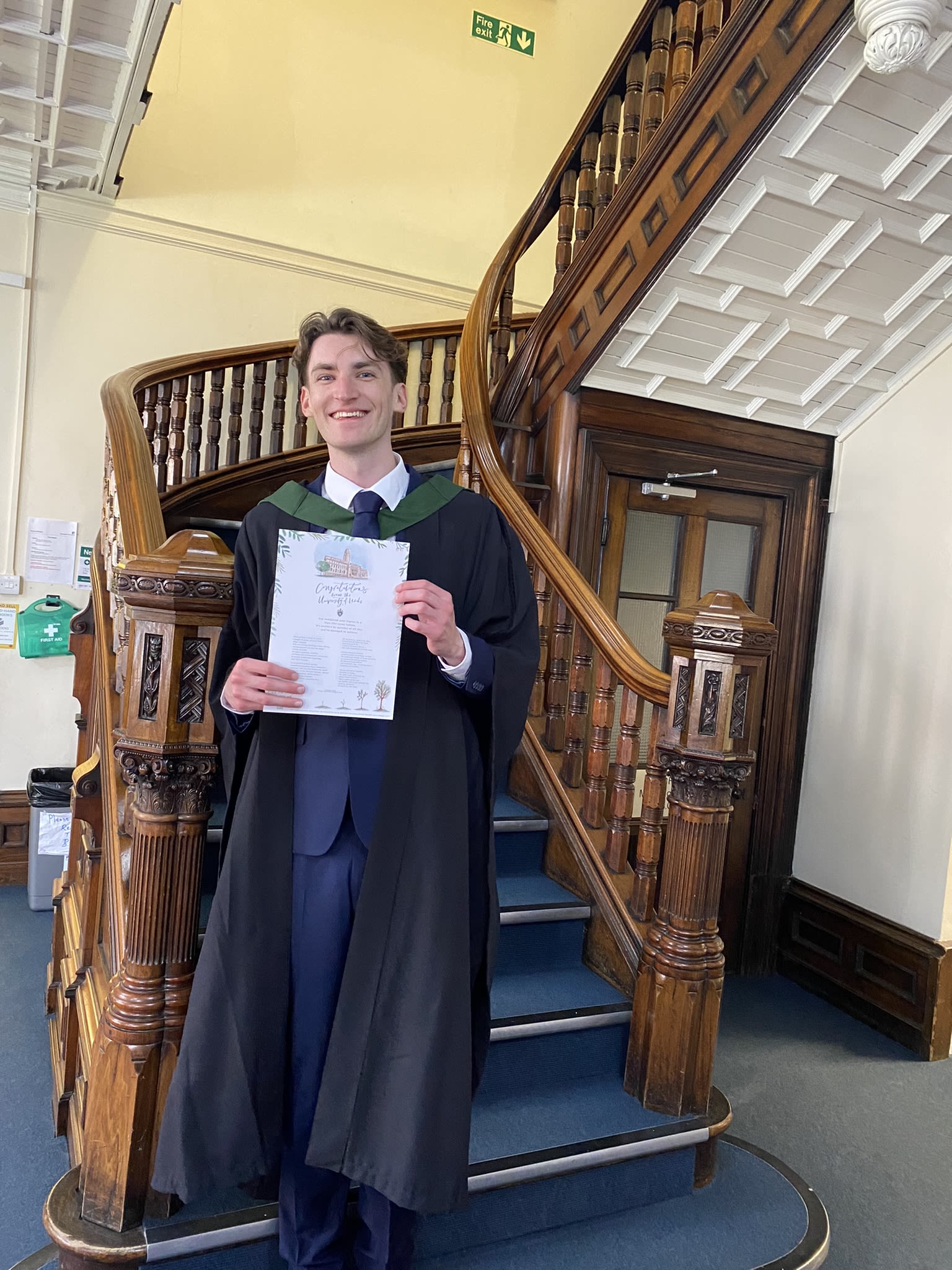
1. Don’t just find any job - try and get something you want because you could end up in something you hate
2. Don’t be afraid to quit your first job if it’s not right for you
3. Continue to have fun
Anna Muolo (Professional Language and Intercultural Studies 2021)
1. Spend more time on campus and join societies or sports club - I studied during the "year of covid" so I never spent any time on campus and now I don't feel like I was/am part of the community
2. Most jobs will prefer experience over education, so if you can, do a part time job or volunteer
3. It's okay to take time after graduating deciding what you want to do and it's okay to do a job that has nothing to do with what you studied
Ningyao Ye (Law 2020)

1. Do what you love
2. Find a job that matches your plan
3. Bigger cities have more opportunities
Haojie Jin (Electronic Technology and Business Management 2021)
Job hunt and decide on a career path
Ling Li (MA Professional Language and Intercultural Studies 2021)
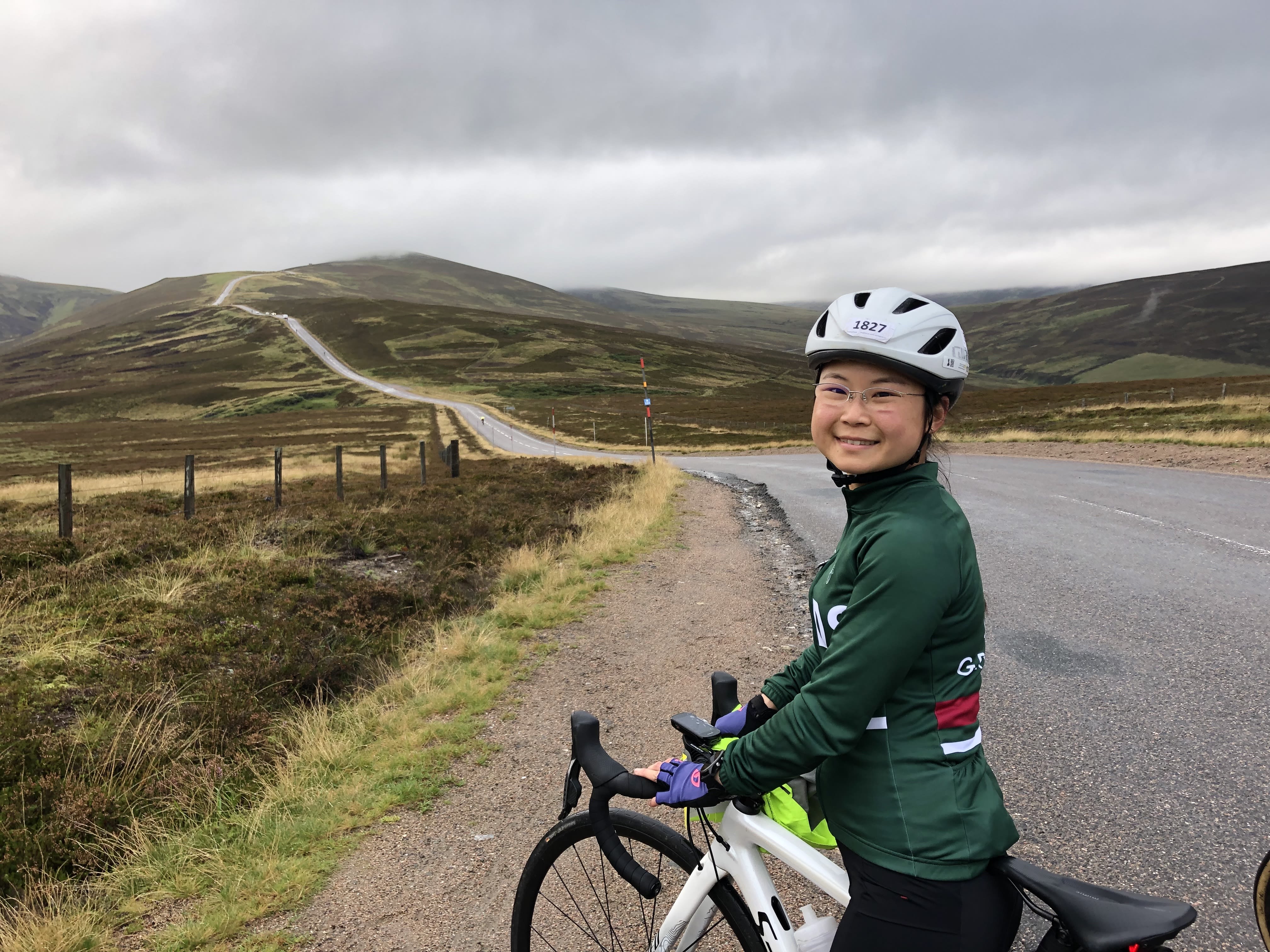
1. Make full use of the University's Career Service
2. Don't compromise
3. Give your full attention to achieve your goal
Sandra Morgan (PGCE 2021)
1. No decision is forever
2. Don't stress too much about career choices
3. There is always learning to be had and you can always move - don't settle until you have found something that makes you happy.
Chloe Li (Li MSc Consumer Analytics and Marketing Strategy 2020)

1. Attending an interview with preparation is the most efficient way to practice interview skills
2. Choose the working culture that matches you
3. Don’t be shy to show your charisma.
Rebecca Todd (English and Film Studies 2020)
1. Broaden your search as much as possible. Try things that you wouldn’t expect yourself to enjoy.
2. Job hunt every single day - even if it’s just a quick look through what’s available. The job market moves really quickly.
3. You will not immediately walk into your dream job so don’t stress yourself out about it
Siddharth Aggarwal (Mechanical Engineering 2021)

1. Get a graduate job
2. Look for opportunities where you can grow
3. Be organised.
Will Sedgwick (Aeronautical Engineering 2021)
1. Find a job that interests you, don’t worry about the pay too much
2. Don’t be afraid to move for the job
3. Apply to a lot of jobs
Simon Stones (PhD Healthcare 2021)

1. Consider all options, including beyond academia.
2. Plan ahead from day 1 - think of ways you can make yourself employable beyond your degree.
3. Network as much as possible.
Eloise Bottrill (Economics and Philosophy 2020)
1. Don’t worry if you don’t get onto a graduate scheme. They can be really challenging to get but non graduate roles can be just as good. I got onto a graduate scheme and left after 6 months for a non-graduate role which I found more interesting. I realised that I overlooked what I actually wanted in a job because I was too focused on the graduate scheme title.
2. Don’t feel like your first job is it. People can be apprehensive about getting a job if they are not sure what they want to do, but nothing is set in stone, so even if you choose a job you can always change later on. I think it’s best to jump right in and try rather than sitting back because you’re afraid to make a wrong decision.
3. Be positive. For many leaving university can be sad because you’ve had so many good memories but this is an exciting new chapter!
Caitlin Mckenna (English Literature and History 2020)
"You don't have to get a job completely associated with your degree"

1. Don't stress or worry if you don't have a 'proper job' sorted and lined up for the month after you graduate. If you panic and take whatever you can, you can end up in a job you don't like and may never find the career that's right for you. Take your time, and don't be embarrassed if you have to take other work in the meantime.
2. You don't have to get a job completely associated with your degree. Shocker I know. I stayed within the same realm by pursuing a creative writing Master's but going from doing a History degree to considering how to make a living as a poet was a terrifying change. And one I wouldn't take back for the world. Don't limit yourself to decisions you made at 18.
3. Stay in Leeds if you want to, but maybe look beyond Hyde Park. There's a big world out there and to stay in the same 'student focused' centre means you miss out on a lot.
Adna Samatar (Medicine 2020)
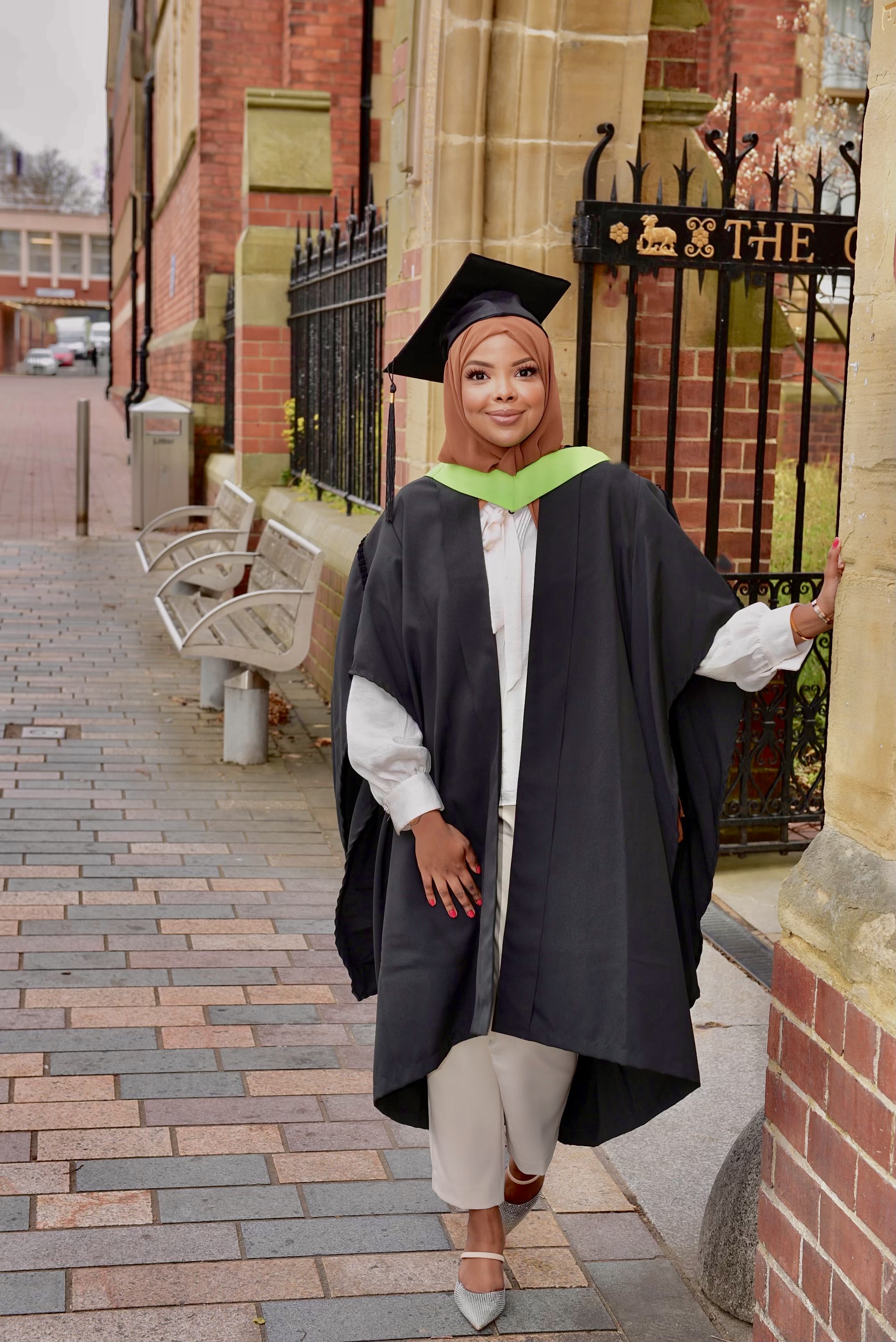
1. Look after yourself - prioritise your well-being
2. Get out of your comfort zone
3. Network - you never know who could be a mentor or inspire you to explore a career or project you never considered
Charlotte Beardwell (Law 2020)
1. If you want to travel, do it (there will never feel like a perfect time, but it is 100% worth it)
2. Don't worry about getting a graduate scheme (most graduates get jobs through other routes)
3. It's okay if you don't get your 'dream' job when you finish, and it’s okay to take a job you didn't necessarily want to save up or get to your next step. You'll get there.
Sophie George (Digital Media 2020)
"Make sure you set attainable goals and don’t be disheartened if things don’t go to plan"
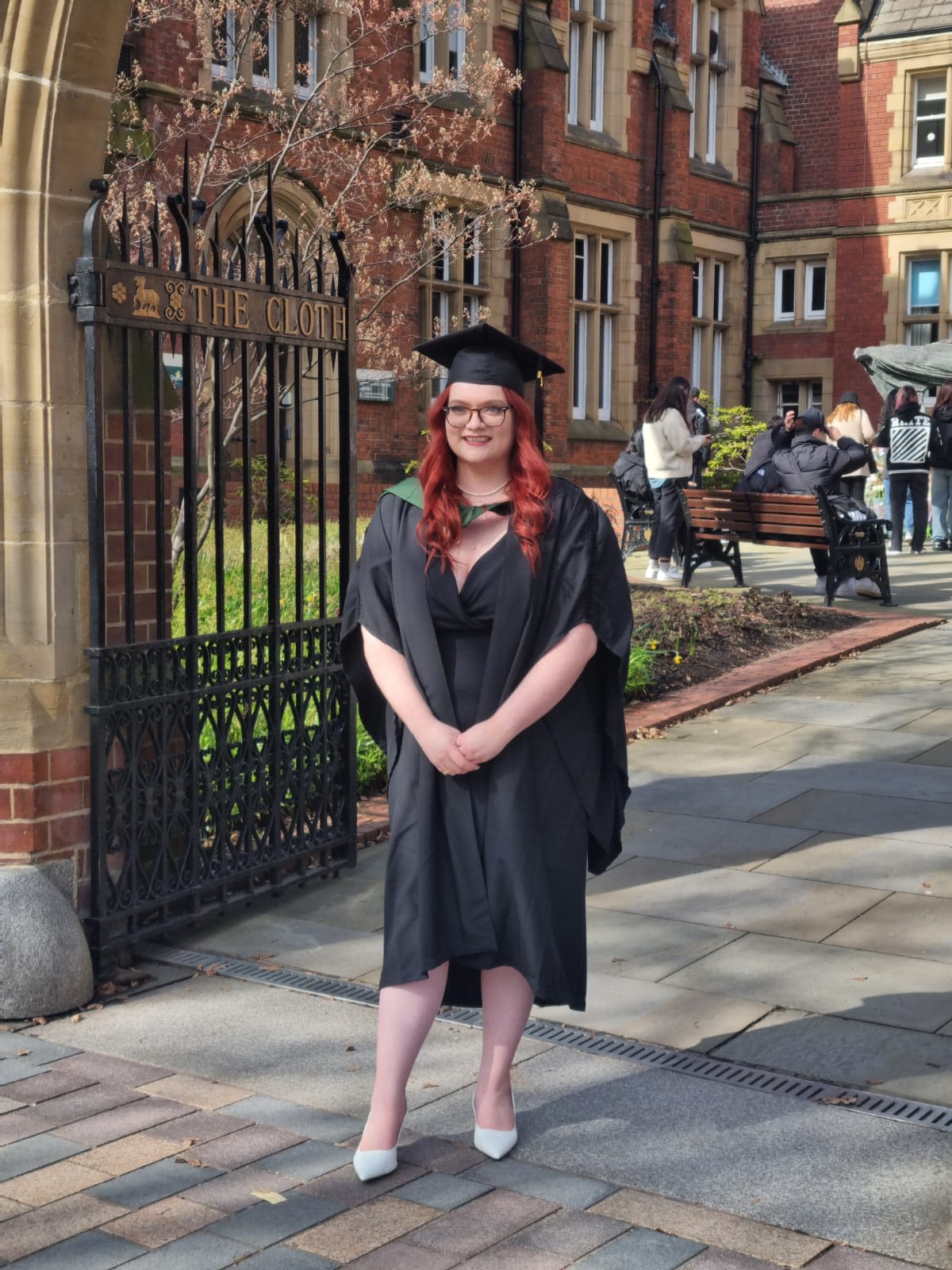
1. Don’t over-plan your next steps - you may have already planned what your next steps are after university but sometimes it takes longer than expected to get to these goals. Make sure you set attainable goals and don’t be disheartened if things don’t go to plan.
2. Look into all options - it might be that you’ve had your heart set on going straight into full-time employment after you graduate, or wanting to do a masters. Whatever your goals are, it’s important to think about all the options available to you, even if at first they don’t seem like a good fit.
3. Job hunting takes time - don’t feel like you’ve failed if you don’t land your perfect job straight away. Think about how you can develop your skills while being employed and remember there’s a lot of people applying. Figure out what makes you stand out from others and use that to your advantage.
Karishma Badal (History and Philosophy 2020)
1. Don’t worry if you have no idea what you want to do. It doesn’t matter, apply to jobs that interest you but most importantly enjoy life.
2. Post-graduate life isn’t that bad, it’s not the end of your fun. In fact I prefer my post-graduate life, as much as I loved university.
3. It’s true life is more stressful as a graduate but it’s also more rewarding. You grow much more.
Maya Stefanska (Arabic and International Business 2020)
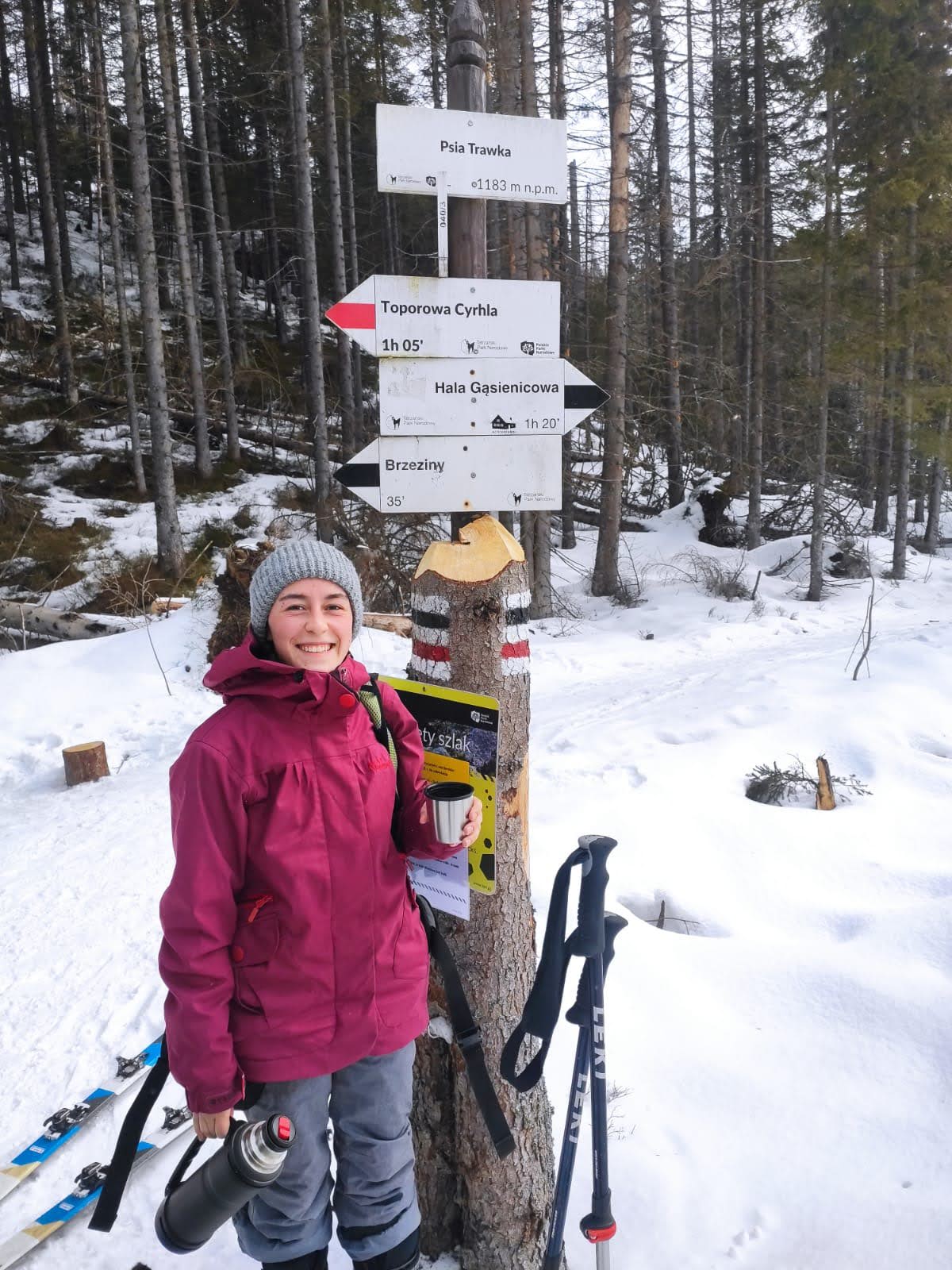
1. Remember to accommodate for change. As one of the classes most affected by COVID you're probably already great at this, but just remember to be at peace with changing situations - things always turn out okay in the end!
2. Try as much as possible to stay in touch with your university mates. You will need each other more than you can imagine now!
3. Don't be afraid to take time off from the rat race. Remember that not everything you do always has to enrich your resume, not at the expense of your wellbeing!
Antonia Brown (Politics 2021)
1. Don't stress that your first job has to be the perfect/dream job, it won't be.
2. Start applying or looking for an internship before you leave university.
3. Find someone to be your mentor, whether a parent or a good family friend make sure you always have someone you can consult with on your career decisions. If anything to make sure you're not ruling any options out.
Luiza Adamczyk (MSc Sustainability and Consultancy 2021)

1. It’s your graduate job and it doesn’t have to be your forever job. If it’s not your dream job that’s okay!!
2. You only need one Yes and the 100 No’s will be all worth it, imagine being given 200 options- you would be equally as overwhelmed.
3. Speak to as many people as possible and ask lots of questions, it’s the only way you will know if a company/ role/ city is right for you.
Eliza Hughes (English and Sociology 2020)
1. Give yourself some time out after exams to have a break and refresh - you won't miss the boat if you don't start working right after university.
2. Be open-minded about the jobs you're applying for - even if it isn't your dream role, it could open up doors for you to get there quicker.
3. Take advantage of learning and development opportunities in and outside your organisation - it's great to do these things whilst you're early on in your career to give you more options.
Owen Taylor (Nutrition (International) 2020)
"You have an opportunity to shape your own path after completing your undergraduate degree"

1. If you are unsure of the discipline you are wanting to work in, don't be afraid of continuing into postgraduate education in a slightly new discipline as this will help increase the job possibilities by increasing the variety of skills and connections you have. This helped me focus on a career path whilst learning a lot about myself.
2. Be resilient. If you have a goal in mind, don't be afraid to fail and continue on a different path, as eventually you can work towards your initial goal by gaining different experience along the way.
3. Make sure to take time for yourself. You have an opportunity to shape your own path after completing your undergraduate degree. Prioritise what is important to you and chase those goals, short or long term. Employers are not just looking for individuals who look good on paper, but for those who are well-rounded and can be seen to fit within a team
Jess Paxman (History 2020)
Being personable is more important in the corporate world than being extremely academic.
Isabella James (Economics and Spanish 2021)

1. There is a world of opportunity outside of a corporate graduate scheme
2. Don't be afraid to admit that you don't know something
3. London really is a great place to be as a graduate!
Molly Celik (History 2020)
1. Don’t worry if you don’t know what you want to do (and don’t just go for something because everyone else is), try to do as much real research about a job as possible (E.g. the culture/people)
2. Life after university will be an adjustment!
3. Don’t be concerned if you feel out of place/behind - everyone goes at their own pace
Maria Guerra (MSc Organizational Psychology 2020)

1. Get involved in as many things as you can (e.g., courses, volunteering, workshops, etc.)
2. Develop your own business/brand
3. Seek advice. Talk to different people and gather different experiences and opinions
Daniel Nutt (Chemical Engineering 2020)
1. Don't stress about your first job being the final job or 'industry' you work in - skills are transferable if you make them transferable.
2. There will be a big gap in ideology between you and older generations, learn to play the game without letting it get in the way.
3. When trying to impress, don't work anymore than you have to - there is only so much progression they can give you, if you want more: move.
Anna Sewards (Professional Studies 2020)
1. I wish I had known to relax and go easier on myself when looking for work after university.
2. Be prepared to go out of your comfort zone - this may lead to where you want to ultimately go.
3. Get support where you can.
Xiaoyan Liu (Global fashion management 2021)
Be hard working
Forever Leeds
300,000 alumni
190 countries
One global community
Never miss a moment - follow us @LeedsAlumni
